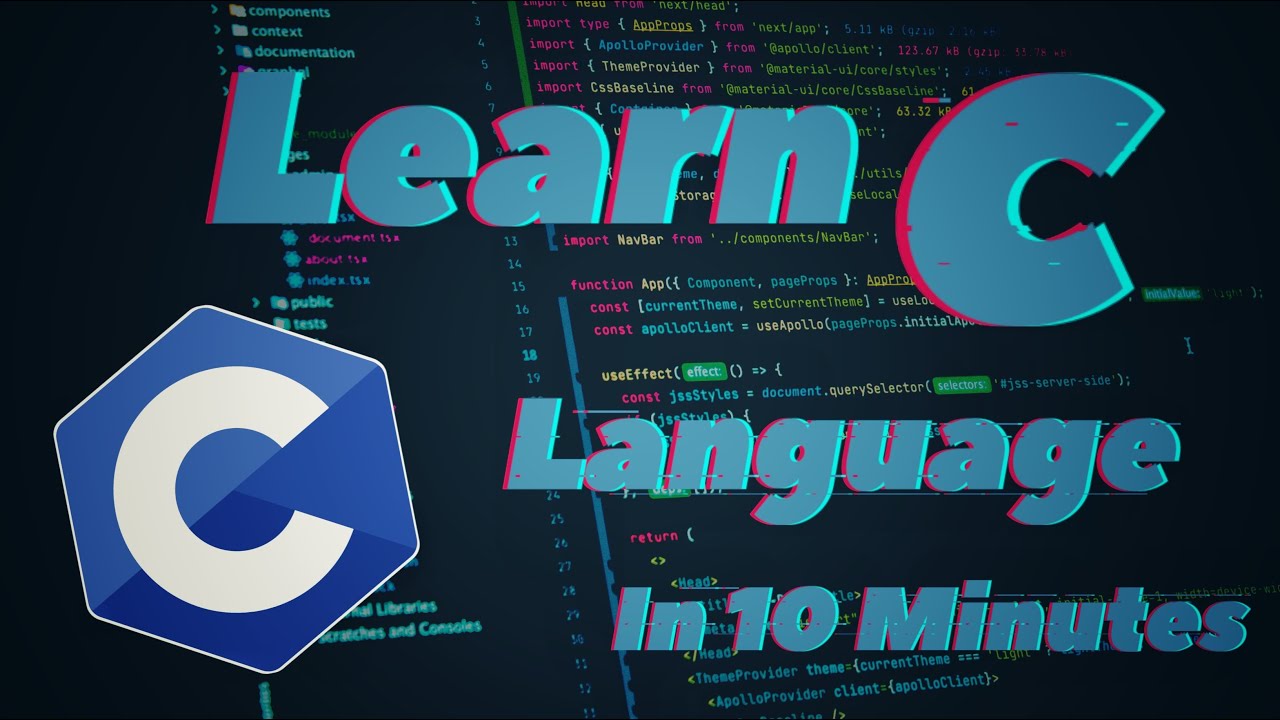Sejarah Bahasa C
Summary
TLDRThis video provides an insightful overview of the history and significance of the C programming language. It traces its development from the 1970s at Bell Labs, its evolution into C++, and the impact of C on modern programming. The speaker emphasizes the benefits of learning C, such as its simplicity for beginners, wide applicability across platforms, and foundational role in understanding other programming languages. Despite being decades old, C remains relevant, especially for system-level programming and embedded systems. The video encourages hands-on practice and highlights the importance of learning algorithms to become proficient in programming.
Takeaways
- 😀 C programming language was developed in 1972 by Brian Kernighan and Dennis Ritchie at Bell Labs.
- 😀 C is a derivative of the B language, which was developed by Ken Thompson in 1970, and B itself evolved from BCPL.
- 😀 C++ emerged in 1985 as an object-oriented extension of C, with further developments making it widely used in professional programming.
- 😀 C programming has a simple syntax, making it easier for beginners compared to more complex languages like Java.
- 😀 One of the key advantages of learning C is that its syntax is shared with many other programming languages, easing the transition to other languages.
- 😀 C is cross-platform and can be used on various operating systems such as Windows, Linux, macOS, and Android.
- 😀 Despite being developed decades ago, C is still widely used, for example, in Arduino programming for robotics and embedded systems.
- 😀 C is a lightweight language that does not require high-spec hardware, making it accessible to students with average computer specifications.
- 😀 Learning C will help you understand algorithms and problem-solving techniques, which are essential for programming success.
- 😀 Practicing coding through typing and debugging is crucial for mastering programming, rather than just passively watching or copying code.
- 😀 Don’t be discouraged by mistakes—debugging errors like syntax mistakes or algorithm issues is part of the learning process in programming.
Q & A
What is the origin of the C programming language?
-The C programming language was developed in 1972 at Bell Labs by Brian Kernighan and Dennis Ritchie, based on the B programming language created by Ken Thompson.
How did the development of C++ evolve from C?
-C++ was developed in 1985 as an extension of C, introducing object-oriented programming features. It underwent multiple stages, with an early version translating C++ to C code before it evolved into a fully functional object-oriented language.
What programming language did C++ originate from?
-C++ originated from the C programming language, which itself evolved from B, a language influenced by BCPL (Basic Combined Programming Language).
What is the significance of learning C for beginners?
-Learning C is beneficial for beginners because it has a simple syntax compared to more complex languages like Java, and it helps build a strong foundation for learning other programming languages.
Why is C still relevant in modern programming?
-C remains relevant because it is used in embedded systems, microcontrollers (like Arduino), and many other applications that require efficient and low-level programming. Additionally, many modern programming languages are based on C's syntax.
What are the key advantages of using C for programming?
-The key advantages of C include its simplicity for beginners, cross-platform compatibility (usable on Windows, Linux, Mac OS, and Android), and its efficiency in system-level programming with low resource requirements.
How does C compare to other languages like Pascal and Fortran?
-C is more complex than languages like Pascal and Fortran, but it is widely used because of its flexibility, efficiency, and adaptability across different platforms, which makes it an essential language in modern programming.
What role does C play in microcontroller programming?
-C is commonly used in microcontroller programming, such as with Arduino, due to its efficiency, lightweight nature, and ability to interact directly with hardware, making it ideal for embedded systems.
What is the importance of hands-on practice when learning programming?
-Hands-on practice is essential when learning programming because it allows learners to apply theory, debug code, and develop problem-solving skills. Writing and compiling code repeatedly builds proficiency and understanding.
How does understanding C programming help with learning other languages?
-Since many modern programming languages have similar syntax to C, understanding C provides a strong foundation that makes it easier to learn other languages like C++, Java, and more, by building on shared concepts and structures.
Outlines

Этот раздел доступен только подписчикам платных тарифов. Пожалуйста, перейдите на платный тариф для доступа.
Перейти на платный тарифMindmap

Этот раздел доступен только подписчикам платных тарифов. Пожалуйста, перейдите на платный тариф для доступа.
Перейти на платный тарифKeywords

Этот раздел доступен только подписчикам платных тарифов. Пожалуйста, перейдите на платный тариф для доступа.
Перейти на платный тарифHighlights

Этот раздел доступен только подписчикам платных тарифов. Пожалуйста, перейдите на платный тариф для доступа.
Перейти на платный тарифTranscripts

Этот раздел доступен только подписчикам платных тарифов. Пожалуйста, перейдите на платный тариф для доступа.
Перейти на платный тарифПосмотреть больше похожих видео

Introduction to C++ Programming

C++ (A Linguagem Imortal de Verdade) // Dicionário do Programador

Learn C Language In 10 Minutes!! C Language Tutorial

1. C# Programming Tutorial | Programming Concept | Translator Programms | Programming Languages

Macam macam bahasa pemrograman | Perangkat lunak bahasa pemrograman | 99 tutorial

Understand Programming Languages
5.0 / 5 (0 votes)
